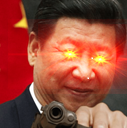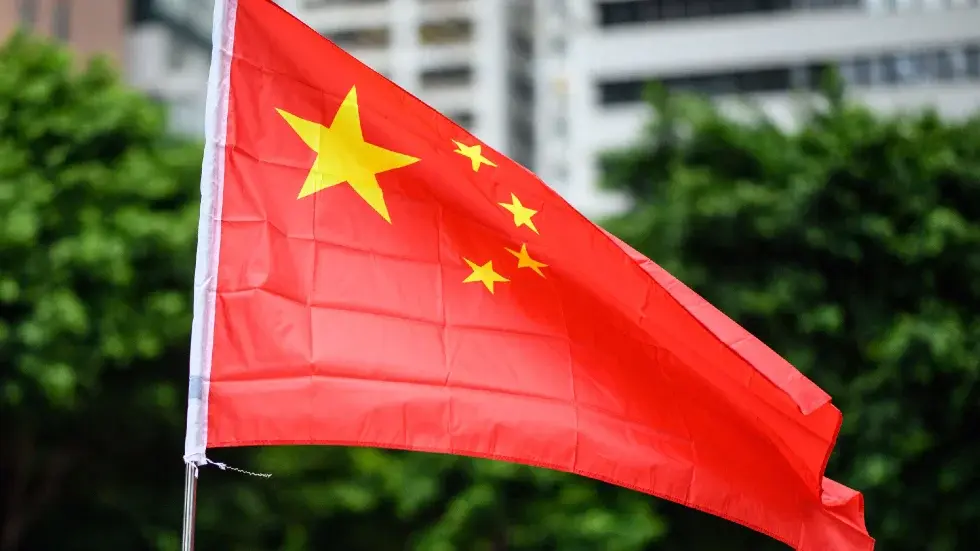


OF COURSE THIS IS A BIT ACCOUNT 





Incredible racism against people of Chinese descent, a STEM research culture that only rewards profitability, and an education system that only helps rich failchildren.


Awww the poor widdle spies! They were just innocently torturing innocent people at bwack sites, then destroying all evidence of torture! How dare they sacrifice these benevolent angels to save some RuZZian orc!


Reiterating the suggestion to take up social hobbies, but also just take up hobbies in general. It gives you interesting things to talk about with other people. For example, I started painting, and talked to other people about it, and now some of them have taken it up and its given us more to talk about and brought us closer together. I find that people like hearing about experiences with hobbies, as its kind of a neutral ground, especially if you’re not an expert in it. It also helps if it’s a visual hobby like painting where I can show people a couple of pictures on my phone as explanation.


My biggest issues with it are all the paywalled episodes and the bad audio mixing, especially the early episodes (voice too low, music too high).

I mean, what else would you do when you found out your mom was doing over-the-pants stuff at Beetlejuice and people were calling that a handjob???


If you want to slowly lose your sanity, I recommend Ghost Stories for the End of the World. It’s a podcast about the intersection of intelligence (agencies), mafia, and the supernatural.
Lots about the CIA, Gladio, and other horrible shit the western governments got up to.


If your local is anything like mine, they won’t respond to the Google forms application anyway and you’ll just get the newsletter for six months.


The Industrial Workers of the World (IWW) does external organizing, but it’s not quite what you’re talking about, I think.
The structure of it is that there is a branch in the local area (in Wisconsin, there are branches in Milwaukee and Madison, although I don’t know how active they are) which workers trying to organize their workplace reach out to, and they provide External Organizers (EO’s) to coach the workers on how to systematically organize their workplace. They meet up, talk about the structure of the workplace, set goals, and then meet regularly to help push the organizing along.
There is another tactic called salting, where a union will get some of their members hired at an employer they are targeting to start the process.
Other unions use these tactics as well, I’m just less familiar with them as they’re less radical. To be an EO, you have to go through some training and gain some experience at your own workplace or shadowing other EO’s.
If you’re kinda very much a communist, the IWW can be a good organization to be a part of. It very much attracts anarchists and syndicalists more than Marxists, but we’re here too, and it’s generally not a big deal if you don’t make it a big deal. Other organizations also do workplace organizing. I am aware of workplace organizing campaigns by CPUSA and even DSA.
Hope this helps!


In the 10s, that number dramatically increased to 918 days.
This is what I was told by a coworker who had been in the semiconductor industry for decades (can’t ask him for sources now because he’s dead):
During the Obama administration, they set up a tax cut to incentivize companies to build more factories, where you would get a tax break if you filed plans within a certain time frame, but you only needed to build one building to take advantage of it on the planned future construction. As an example, Intel slowly built a new fab in Arizona, and, once it was completed, they left it empty for years, only starting to install equipment in 2019. This facility was also built with the move to 450mm wafers in mind, so it was much larger than previous fabs. The move to 450mm wafers never happened, and probably never will.
A big part of the speed is the extremely poor mid to long term planning. Constant rework because of constantly changing demands, slashing workforces during slow periods and then struggling to fill positions long after they should have been filled, and more bullshit as you can imagine.


supported a worker-led campaign which would ultimately become the first ever federally-recognized union in the U.S. fast food industry.
Ah, the Burgerville drama.
This decision upended a perceived tradition within the IWW of not pursuing contracts with employers
That’s a bit of a misrepresentation, as what I remember “traditionalists” got up in arms about was a tradition of not pursuing contracts containing no-strike clauses, which undermines the IWW’s direct action approach as opposed to business unions who are all too happy to support no-strike clauses.
I generally ignore GEB drama and was unaware of the rest of the situation, so it’s an interesting read.

Unless you’re wealthy, it doesn’t matter who you vote for. Your interests are not represented, and will not be represented. This isn’t accidental, this is the system working as intended (See: Federalist 10). The US constitution was created by wealthy white men to enshrine the minority power of wealthy white men as the law of the land.
The good news is that political activity is not just limited to voting! Voting in federal elections is mostly a waste of time, as the differences between candidates and major parties is largely just rhetorical. If you must vote, concentrate on local elections, where you might be able to fend off the interests of the powerful landlord and corporate lobbies. But, there’s much more you can do! It just requires you to put in effort personally. Political organizing largely can’t be done at a keyboard. You need to talk to and form relationships with your coworkers and neighbors. Organize a union at work, a tenants’ union among your neighbors, undertake the task of actually educating yourself politically, feed the unhoused and treat them like human beings. Engage in direct action against the power elite who are killing us and our planet.
Regardless of what task you set yourself to, it requires you to  ,
,  , and engage with other human beings.
, and engage with other human beings.


I’m much more concerned about the very real and confirmed ties (see: ) Zoom, Microsoft, Apple, Amazon, Google, my ISP, my cell phone service provider, etc have to the security apparatus of the country I actually live in who have actual power and authority over me and a long history of murdering left wing activists.
) Zoom, Microsoft, Apple, Amazon, Google, my ISP, my cell phone service provider, etc have to the security apparatus of the country I actually live in who have actual power and authority over me and a long history of murdering left wing activists.


The writer is the author of ‘Chip War’, a professor at the Fletcher School, a nonresident senior fellow at the American Enterprise Institute and a partner at Greenmantle
On a recent quarterly earnings call, the chief executive of Semiconductor Manufacturing International Corporation, China’s leading chipmaker, predicted a “global supply glut” in the types of semiconductors his company produces. Simultaneously, he announced a $7.5bn increase in capital expenditure.
It may defy business logic but, helped by generous subsidies, China’s chipmakers are ramping up production capacity despite concerns about oversupply. According to one consultancy, the country’s chip production capacity will grow by 60 per cent in the next three years, and could double over the next five. Since western restrictions on the exports of chipmaking equipment to China mean that it can’t produce the most advanced processor chips, much of this production will be of foundational processor chips, which are widely used in cars, household goods and consumer devices.
No wonder trade policy officials are getting nervous that China may flood the market in certain types of chips. The chief executive of TSMC, the world-leading Taiwanese chipmaker, recently noted concern over excess capacity in foundational segments. Other chip CEOs privately say the same. The most pessimistic analysts see China’s investment in solar panels as an analogy, worrying that the country’s chipmaking investment will drive down prices — and western companies’ profits.
Until recently, overcapacity risk was a topic of conversation only among economic bureaucrats and trade lawyers. Now, it has reached the highest levels of G7 policy debate. On January 8, Republican congressman Mike Gallagher called on the Biden administration to use tariffs if necessary to prevent China gaining “excessive leverage” over the world’s economy.
Yet it is not clear which segments might see overcapacity. There are many types of foundational chips, produced in different fabrication plants, with different materials, by different companies. It isn’t guaranteed that Chinese companies will win market share in every sector. For example, the painful pandemic-era shortages have already induced some western automakers to sign long-run supply deals, so they are less likely to buy more from Chinese suppliers even if their prices are lower.
Nevertheless, the US, European and Japanese governments are all debating potential responses to Chinese chip overcapacity. They face complex trade-offs. Tariffs are the usual tool for dealing with dumping, but the west doesn’t directly import large volumes of Chinese chips; they’re embedded inside finished devices. Foundational chips often constitute a tiny fraction of a product’s cost. Some companies don’t even know the origin of chips inside their components. Given the administrative complexity of tariffs, officials are exploring alternatives. One approach is to subsidise the use of non-Chinese chips, though this would require governments to find new funds.
A second option is to limit the market access of specific Chinese companies. SMIC manufactured the sanctioned Huawei’s controversial 7nm smartphone processor in 2023, and the commerce department is formally investigating whether doing so violated US law. If so, China hawks in Congress will demand tough punishment (though western businesses that still work with SMIC will lobby for leniency).
Finally, Chinese chips could simply be banned from “critical” use cases. Intelligence agencies already worry about malicious insertions and compromised chips. Anything from medical devices to electric vehicles might plausibly be considered critical infrastructure.
Europeans look at the problem of overcapacity primarily through the lens of trade harm, not security, so they’ll reject any response they consider non-compliant with the rules of the World Trade Organization. China hawks in the US and Japan are more focused on the security implications. They had few concerns around de facto banning Huawei from telecom infrastructure and would follow suit with banning “untrustworthy” Chinese chips from critical sectors too.
Yet blanket bans may not be necessary if western companies are deterred from buying Chinese chips. Gallagher has gone public with his concern over China’s subsidies, partly to push the Biden administration to act. But CEOs will also carefully parse Gallagher’s statements. The House of Representatives’ committee has already called executives from several large US chipmakers to testify over their ties to China. As governments ramp up investigations of potential overcapacity in China, companies elsewhere will realise that they, too, could be asked to explain the security implications of their reliance on cut-price Chinese chips.


I will finally be forced offline to read book. Thank you Comrade Xi.


I’m assuming this is a minesweeper. Fiberglass and wood are used to build minesweepers, as a steel hull will set off magnetically-fused naval mines. You still have the issue of the engines, shafts, and propellers, but those have much lower magnetic effect than an entire vessel made of ferrous metal.


If you want your sticker to stay, spray the sticky side with a spray adhesive like E6000 prior to sticking it. That adhesive is stronger than any sticker.
Also, CrimeThinc’s Recipes for Disaster has some pretty good ideas in it.


I like to go all the way back to Pints of Guinness Make You Strong sometimes. The line
Always gets me


Might as well just ask what my Recap is: